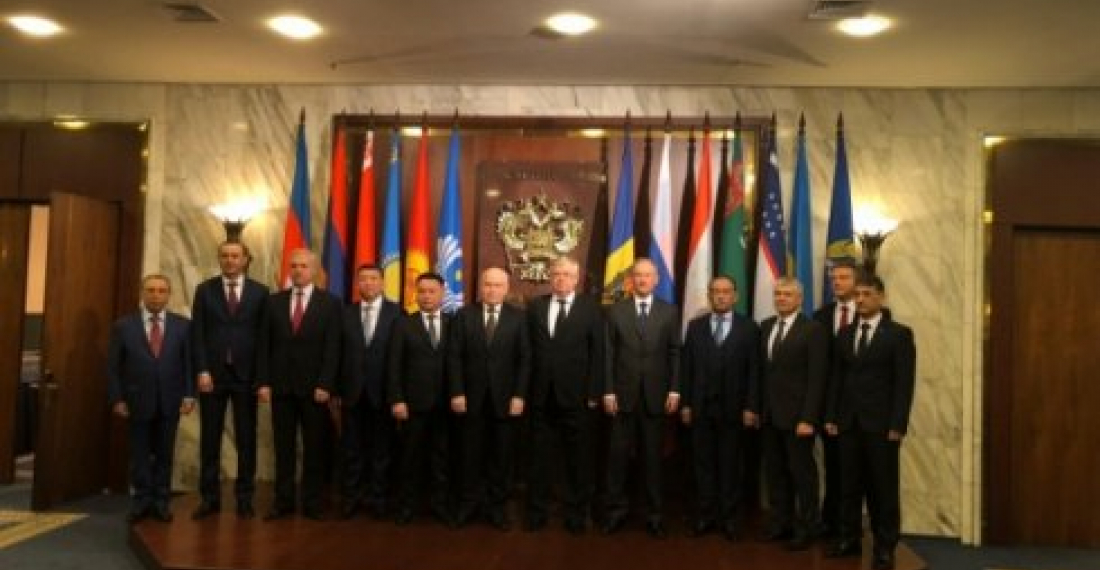The heads of the Security Councils of the ten member states of the Commonwealth of Independent States took place in Moscow on Wednesday, 21 November. It was hosted by the Secretary of the Russian Security Council, Nikolai Patrushev. This was the sixth gathering of the Security Council heads and the meeting focused on the threat of terrorism. The framework is considered an important space for Russia to maintain its influence on the security apparatus of the neighbouring former Soviet republics.
It seems however that this year Russia decided to take the process one step further by inviting to the meeting Valeri Semerikov, the Acting Secretary General of the Collective Security Treaty Organisation (CSTO), the military alliance that it leads.
A family photo of the meeting showed the Acting Secretary general of CSTO posing with the representatives of the ten CIS member states and the Secretary General of the CIS.
All members of the CSTO are members of the CIS, but not all members of the CIS are members of CSTO. Azerbaijan, Moldova, Turkmenistan and Uzbekistan are not.
There is some speculation that Russia may be trying to blur the lines between the two organisations in order to defuse some tensions that have arisen in the CSTO, with Armenia accusing some of the member states of not acting like good allies, whilst non member of Azerbaijan has been flirting with the idea of joining the CSTO, something which Armenia has promised to veto. It could also be that this was a one-off justified by the theme of the discussions of the meeting. The CSTO was not present at the 5th meeting of the CIS Security Council heads in 2017 (see picture below)

It should be noted that out of the 15 former Soviet republics, five - the three Baltic States, Georgia and Ukraine are not members of either the CIS or the CSTO.
See also related content: Belarus to sell more arms to Azerbaijan
source: commonspace.eu
photo: Participants at the meeting of the heads of the Security Councils of the CIS member states: the head of the presidential administration of Azerbaijan Ramiz Mehdiyev, Secretary of the Security Council of Armenia Armen Grigoryan, State Secretary of the Security Council of Belarus Stanislav Zas, Assistant to the President - Secretary of the Security Council of Kazakhstan Gabit Bayzhanov, Secretary of the Security Council of Kyrgyzstan Damir Sagynbayev, Advisor to the President of Moldova in the field of defense and national Security Secretary of the Supreme Security Council of Moldova Artur Gumenyuk, Secretary of the Security Council of the Russian Federation N. Patrushev, Secretary of the Security Council of Tajikistan Abdurahim Kakharov, Secretary of the Security Council under the President From Uzbekistan Viktor Makhmudov. Also participating in the meeting is the Chairman of the CIS Executive Committee, Sergey Lebedev, acting president. CSTO Secretary General Valery Semerikov.






